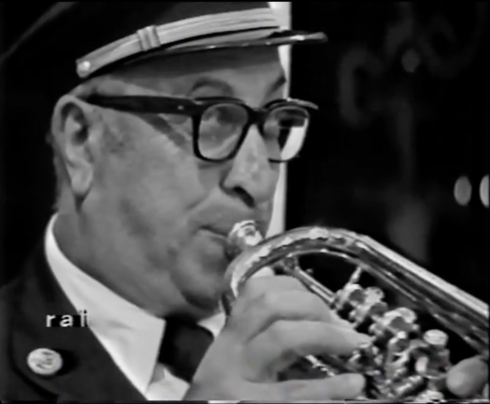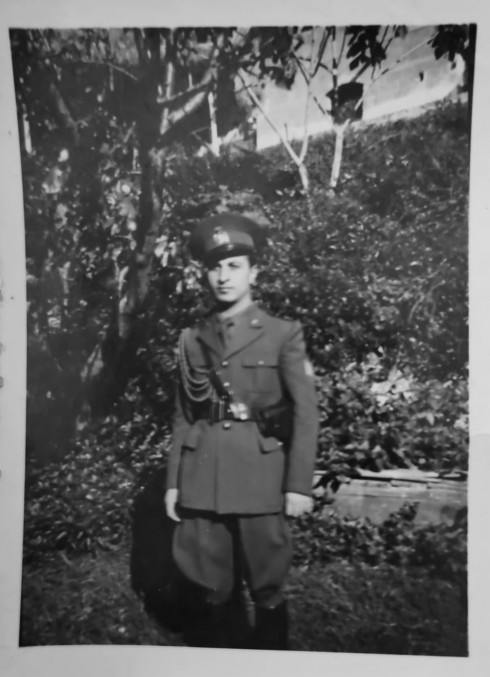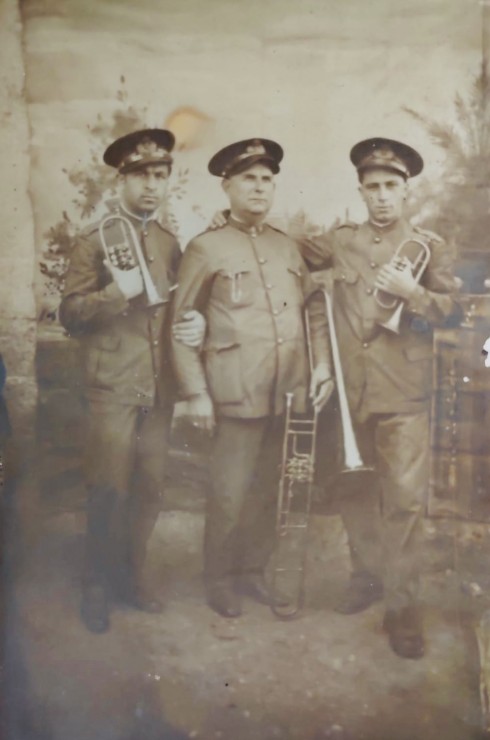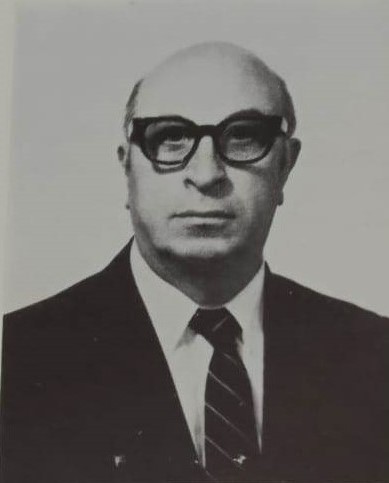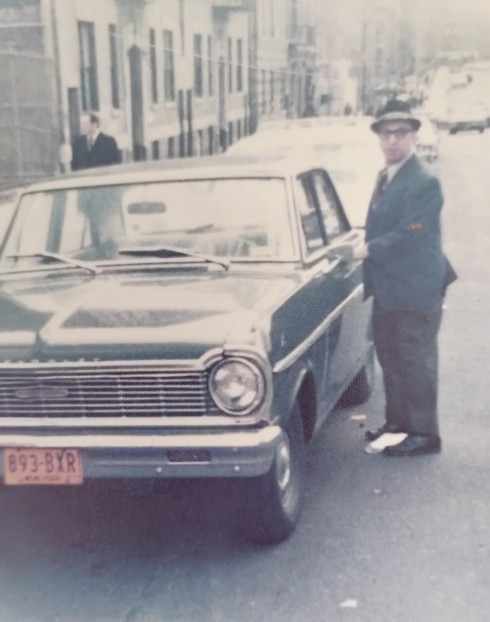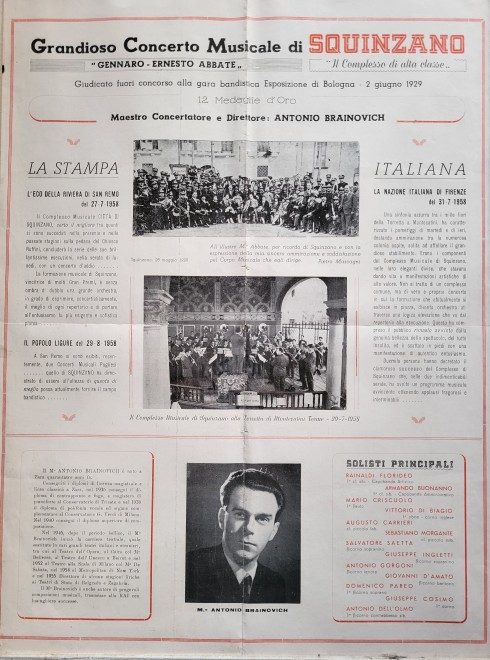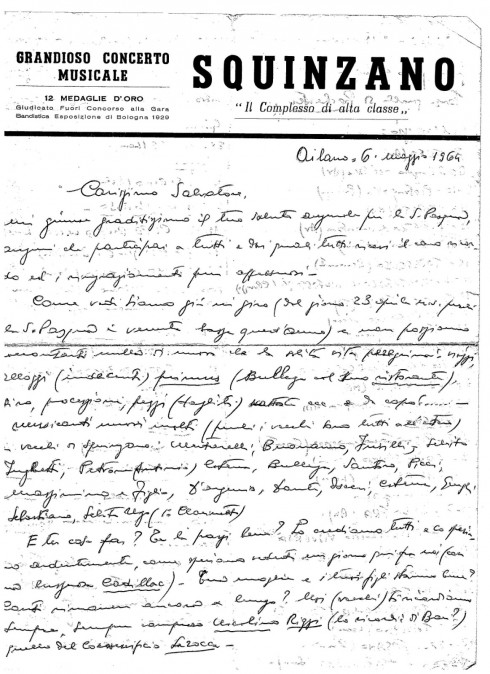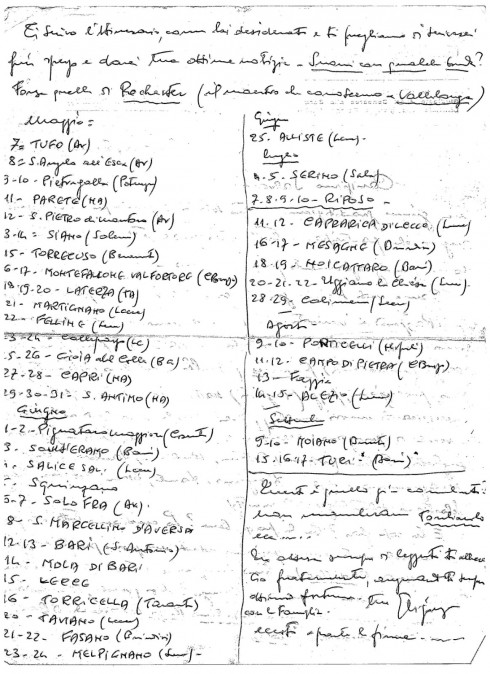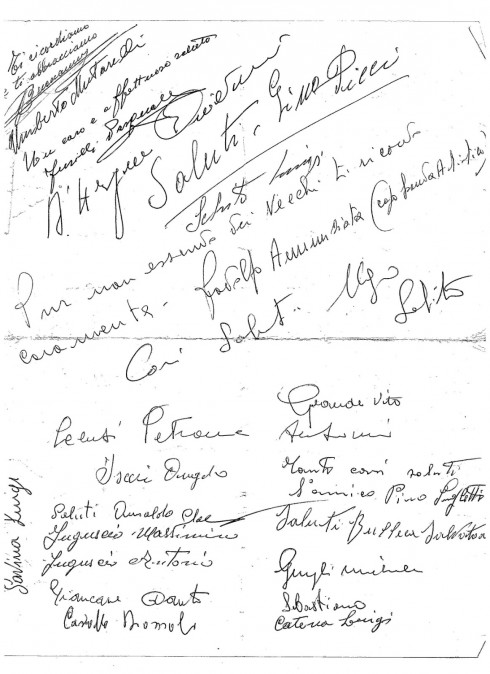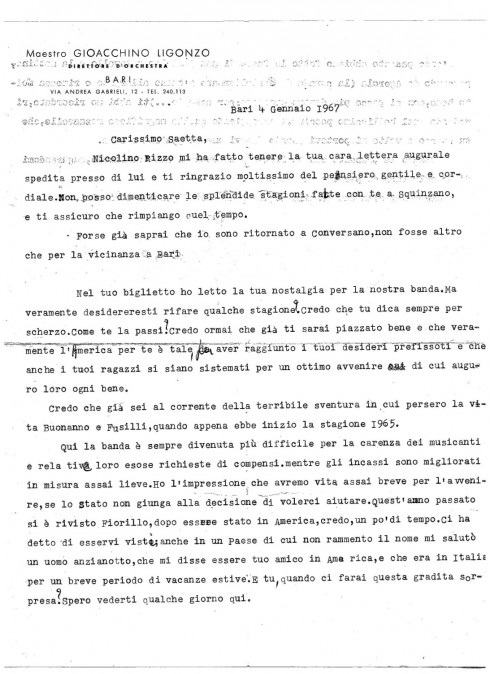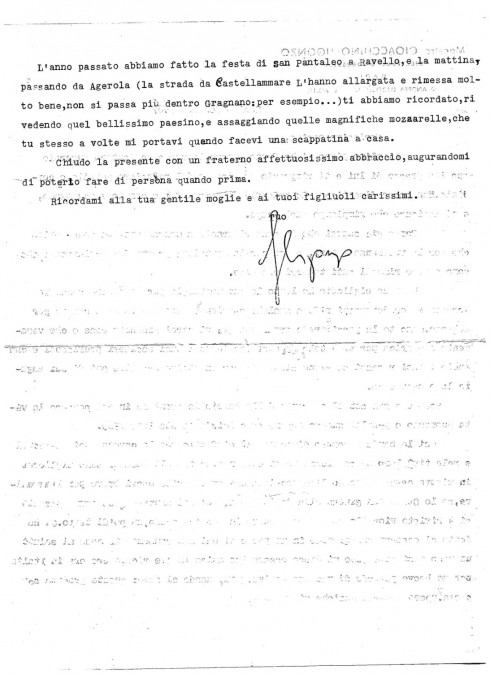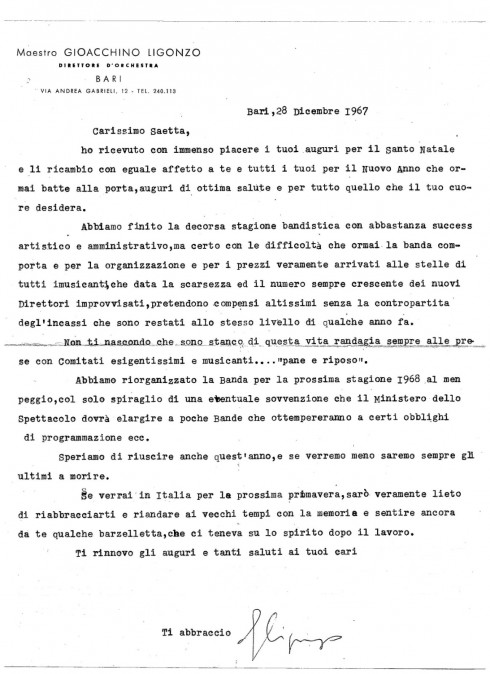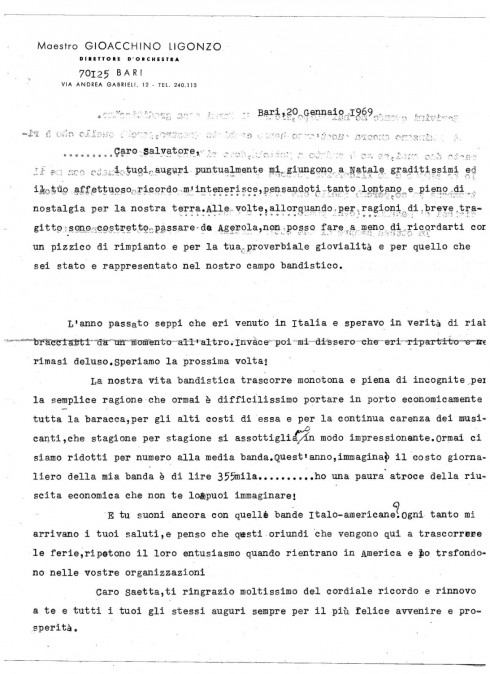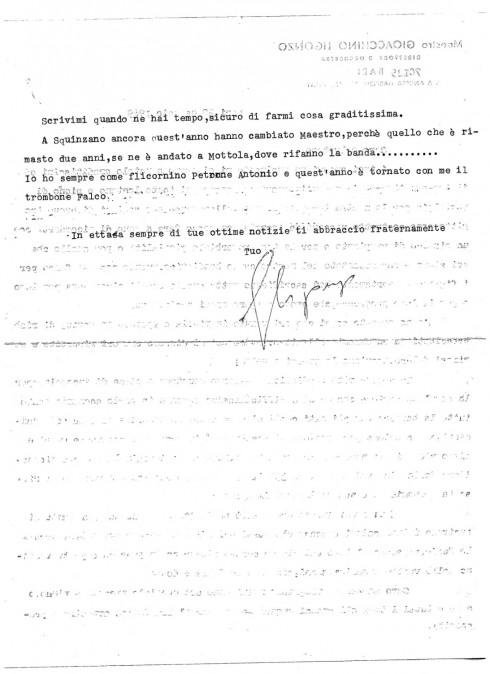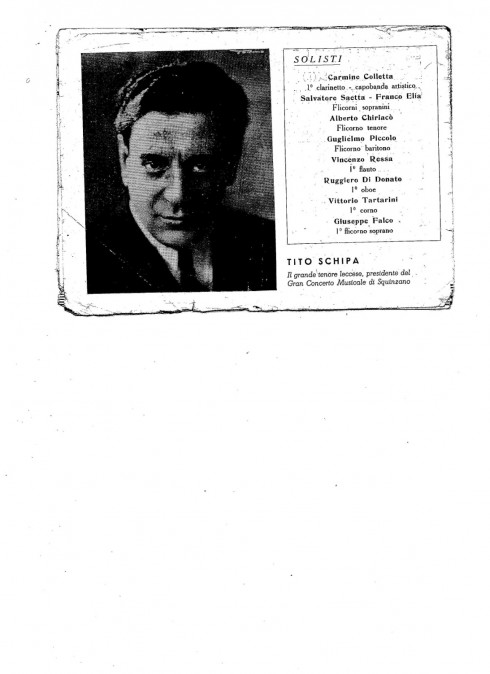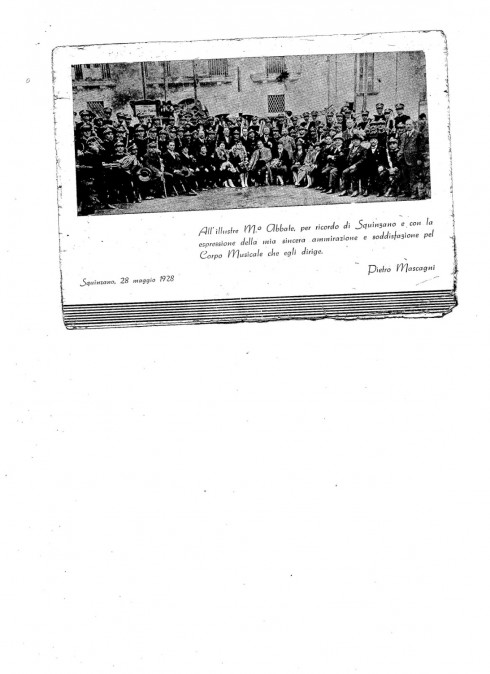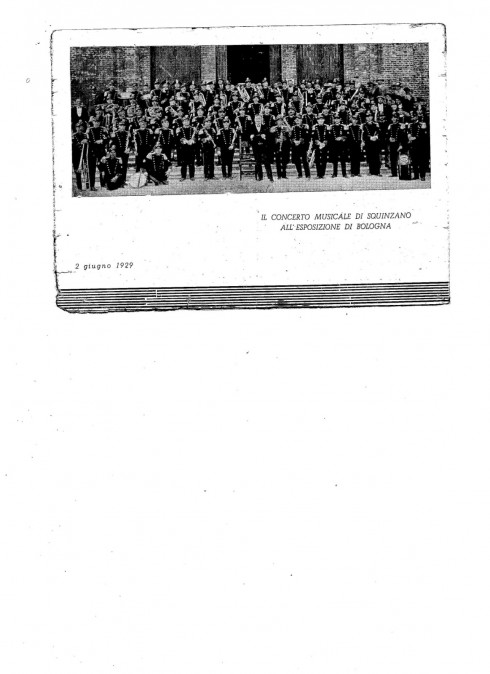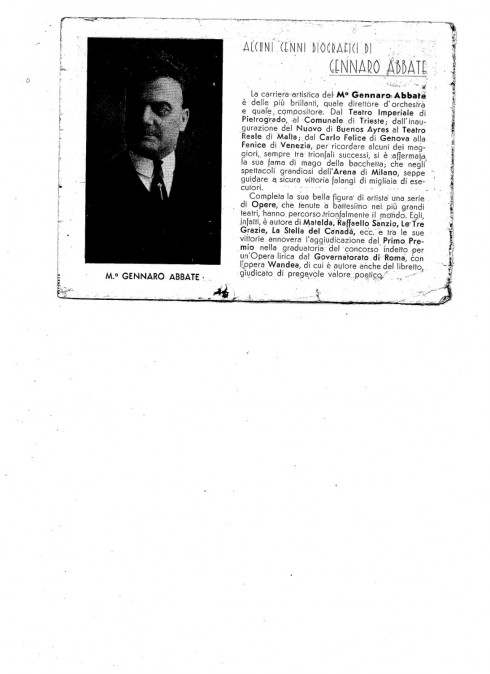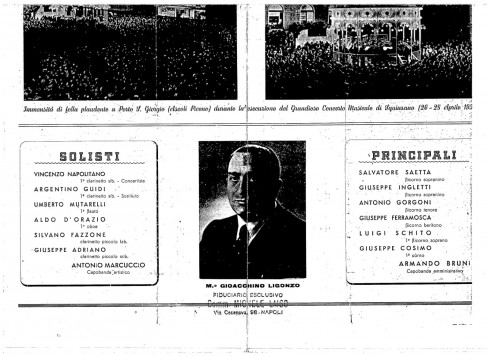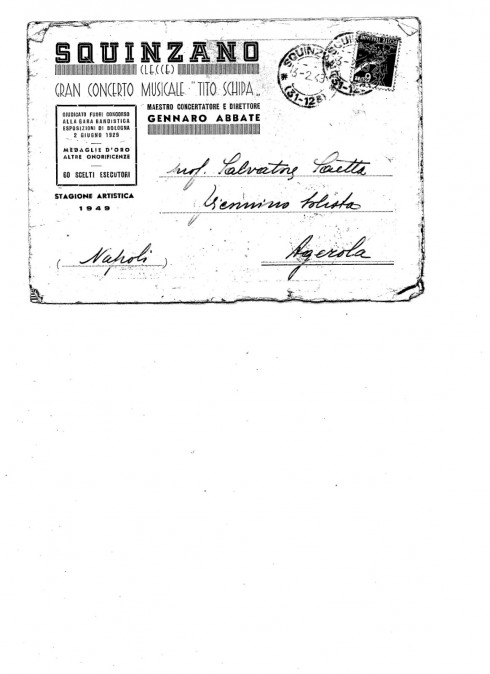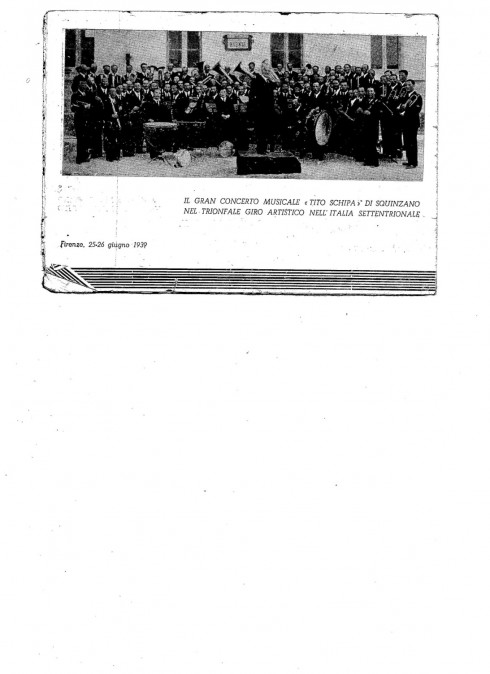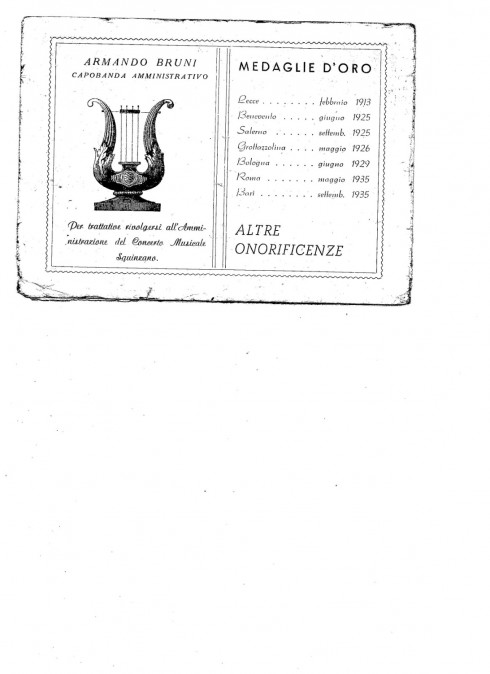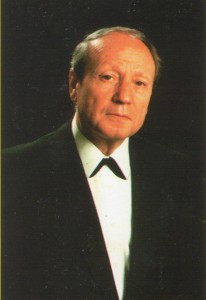Title: Lost Tapes Vol. 18 Salvatore Saetta conducted by Giuseppe Chielli
Group: Banda di Gioia del Colle (1979), Banda di Lecce (1980/81)
Year: 1979/81 © 2024
Graphic: 3Heads Agency
Text: Pierfrancesco Galati
Recorder: Aldino Miceli, Peppino Purificato & wife
Discover, digitalization, sound track selection, editing: Livio Minafra
Mastering and restoration sound engineer: Gianluca Caterina
Label: Angapp Music – It
Produced by Livio Minafra
The late 19th-century instrumental reform by Alessandro Vessella, originating from Campania, established the lineup of the quintessential Band. Conversely, the Apulian Ernesto Abbate, promptly at the beginning of the 20th century, promoted the symphonic march, thus opening up an infinite repertoire of marches that would develop over the decades, and the fantasy, an audacious idea to bring reasoned potpourris of the most relevant parts of an opera to the squares, for everyone. The successor of Ernesto Abbate, also in Squinzano (Lecce), is his brother Gennaro. In 1945, amidst infrastructural and human ruins, the Band immediately resumed with the now elderly Gennaro Abbate. Soloist from the early days Quirino Maiani, from 1945 to 1946, and then Salvatore Saetta from 1948 to 1961. For these symbolic reasons, we have chosen to combine Saetta and Maiani, epic voices of an era and witnesses of the Band and the Abbates.
Livio Minafra and Pierfrancesco Galati, December 16, 2022
Salvatore Saetta
Salvatore Saetta was born in Agerola on the Amalfi Coast on April 11, 1918, into a family of musicians. The youngest of five children, he embarked on his musical studies at the age of ten with his father and older brother, who played tenor euphonium and soprano cornet, respectively. He continued to play as a self-taught musician. He achieved his first success in 1938 by winning a competition for soprano cornet soloist with the band of Modica (Ragusa), with which he remained until 1940. From 1940 to 1945, he served in the musical corps of the PAI (Italian African Police), a police force of the Kingdom of Italy operating in Italian colonies in Africa during the fascist period. After being discharged in 1946, he joined the band of Alvito (Frosinone) and the following year with that of Casalanguida, at the time one of the most renowned bands in the Abruzzo region alongside those of Chieti and Lanciano. During the patronal feast of Tocco da Casauria in honor of St. Eustace, Salvatore Saetta met Vincenzo Cocciolo, a musician and great music scholar who played with the band of Squinzano, at the time directed by Gennaro Abbate. Cocciolo proposed to Saetta to join the band of Squinzano. Thus, from 1948 to 1961, except for the years 1955-1956, Saetta delighted the squares of Southern Italy with the sound of his soprano cornet, with a band, that of Squinzano, which was undoubtedly the most renowned in all of Southern Italy under the incomparable baton of Gennaro Abbate. Due to fatigue and old age, substitutes were assigned to him to conduct the final performances of evening commitments to reduce stress and alleviate fatigue. In this role, from 1950 to 1954, the conductors Silvio Manzo, Michele Lufrano, Angelo Laudisa, Giuseppe Patanè, and Pino Rosiello alternated, followed by Gioacchino Ligonzo and Antonio Brainovich.
In the early 1960s, he emigrated to the United States, where he lived in New York, achieving great success in the most renowned bands in the States playing the trumpet and cornet, collaborating, among other things, with Patané himself, who had meanwhile become the Director at the Metropolitan Opera House in New York. Returning to Italy in 1979, he was immediately hired by the Grand Band Concert of the city of Gioia del Colle, directed by Maestro Giuseppe Chielli, who, after hearing him, decided to make a personal transcription of Giuseppe Verdi’s Aida specifically for him. He then moved on in the years 1980 and 1981 to the historic band of Lecce “Schipa-D’Ascoli,” always with Chielli. He ended his career with the Band of Mesagne in 1985-1986 and the Band “Giovanni Paisiello” of Lecce. Salvatore Saetta died in his hometown of Agerola on December 23, 2010.
Pierfrancesco Galati, musicologist
“Saetta was a soloist from the golden age of the Band, where there were real Maestros in the first place and where… there was no joking around. It was played with a beautiful, intonated, precise sound, all measured, beautiful. Saetta was also a humble and polite person. I remember he had a cylindrical instrument that was… a piece of insulating tape! Once he was told to buy a new one. His response was ‘Are you crazy!? I spent years teaching it what it does. Honestly, I don’t feel like doing the same job with a new thing!’ Saetta was a player without much bravado, measured and precise. His flagship piece was Norma.”
Vincenzo Ciliberti, soprano cornet soloist

 English
English Italiano
Italiano
